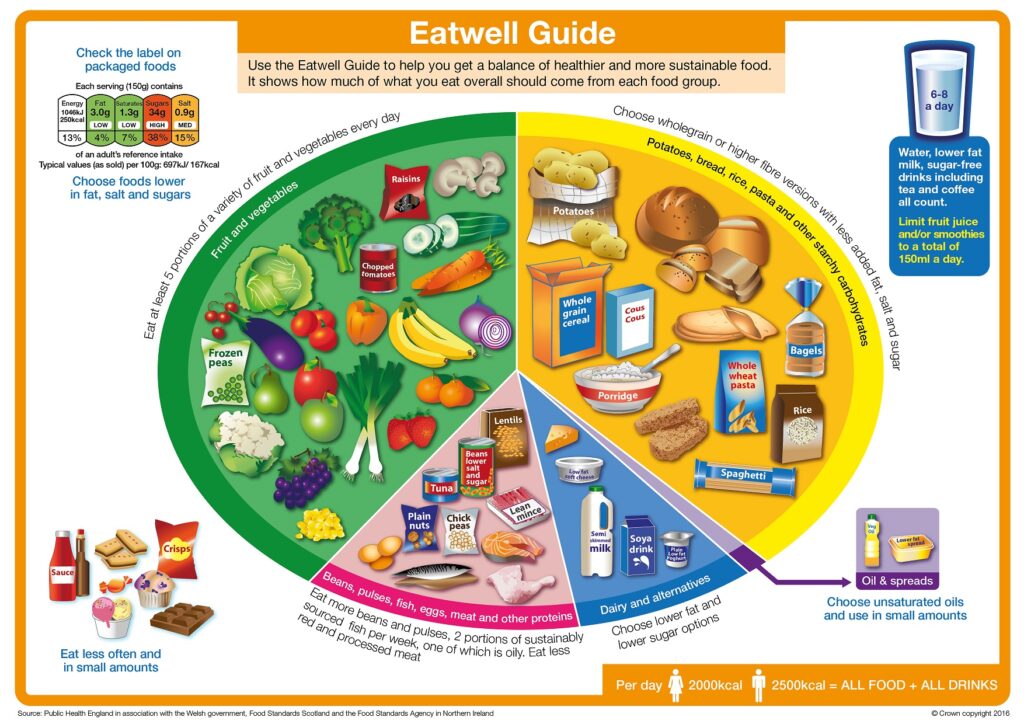In the intricate tapestry of life, a balanced diet acts as the loom upon which our health and well-being are woven. It’s not just about filling our stomachs; it’s about meticulously crafting a dietary intake that provides our bodies with the diverse array of nutrients they need to function optimally. A balanced diet, in essence, is the art and science of consuming a variety of foods in the right proportions, ensuring we receive all the essential building blocks, fuel, and protective elements necessary for vitality, growth, repair, and disease prevention.
This comprehensive exploration delves into the multifaceted world of balanced diets, examining the essential nutrients they provide, the benefits they bestow upon our bodies and minds, the challenges we face in achieving them, and practical strategies for incorporating them into our daily lives.

The Orchestra of Essential Nutrients:
A balanced diet is not a monolithic entity, but rather a harmonious blend of various nutrients, each playing a critical role in maintaining our health. These nutrients can be broadly categorized into macronutrients and micronutrients:
- Macronutrients: The Energy Providers and Building Blocks:
- Carbohydrates: Often demonized, carbohydrates are the primary source of energy for our bodies, fueling our brains, muscles, and other vital organs. They are classified into simple carbohydrates (sugars) and complex carbohydrates (starches and fiber). Complex carbohydrates, found in whole grains, vegetables, and legumes, provide a sustained release of energy and are rich in fiber, which aids digestion and promotes satiety. Simple carbohydrates, while providing a quick burst of energy, should be consumed in moderation to avoid blood sugar spikes and crashes.
- Proteins: The workhorses of our cells, proteins are essential for building and repairing tissues, producing enzymes and hormones, and supporting a healthy immune system. Composed of amino acids, proteins are found in animal sources like meat, poultry, fish, eggs, and dairy, as well as plant-based sources like beans, lentils, nuts, and seeds. A balanced diet should include both complete and incomplete protein sources to ensure we obtain all the essential amino acids.
- Fats: Often misunderstood, fats are vital for absorbing fat-soluble vitamins (A, D, E, and K), providing insulation, and protecting our organs. They also contribute to hormone production and cell membrane structure. However, not all fats are created equal. Unsaturated fats (monounsaturated and polyunsaturated) found in olive oil, avocados, nuts, seeds, and fatty fish are considered healthy fats that can lower cholesterol levels and reduce the risk of heart disease. Saturated fats, found in red meat, butter, and processed foods, should be consumed in moderation, while trans fats, often found in processed foods, should be avoided altogether due to their detrimental effects on cardiovascular health.
- Micronutrients: The Essential Regulators and Protectors:
- Vitamins: These organic compounds are crucial for a wide range of bodily functions, including energy production, immune function, and nerve health. They are classified as either water-soluble (B vitamins and vitamin C) or fat-soluble (vitamins A, D, E, and K). Each vitamin plays a specific role, and a deficiency in any one can lead to various health problems.
- Minerals: These inorganic substances are essential for building strong bones and teeth, regulating blood pressure, and maintaining proper nerve function. Key minerals include calcium, iron, potassium, magnesium, and zinc. Like vitamins, each mineral plays a unique role, and a deficiency can have significant consequences.
- Water: Often overlooked, water is the lifeblood of our bodies, making up about 60% of our weight. It is essential for transporting nutrients, regulating body temperature, and flushing out waste products. Staying adequately hydrated is crucial for maintaining overall health and well-being.

The Symphony of Benefits: How a Balanced Diet Enhances Our Lives:
Consuming a balanced diet reaps a multitude of benefits, impacting our physical, mental, and emotional well-being:
- Optimal Physical Health:
- Weight Management: A balanced diet, coupled with regular exercise, is the cornerstone of healthy weight management. By providing adequate nutrients without excess calories, it helps regulate appetite, promote satiety, and prevent overeating.
- Disease Prevention: A balanced diet is a powerful shield against chronic diseases such as heart disease, type 2 diabetes, certain types of cancer, and osteoporosis. By providing essential nutrients and antioxidants, it strengthens our immune system and protects our cells from damage.
- Improved Energy Levels: A balanced diet provides a sustained release of energy, preventing energy crashes and promoting overall vitality. By providing the necessary fuel for our bodies, it allows us to perform daily tasks with ease and maintain optimal physical function.
- Strong Bones and Muscles: Adequate intake of calcium, vitamin D, and protein is essential for building and maintaining strong bones and muscles, preventing osteoporosis and age-related muscle loss.
- Healthy Digestion: Fiber-rich foods, such as fruits, vegetables, and whole grains, promote healthy digestion by adding bulk to the stool and preventing constipation.
- Enhanced Mental and Cognitive Function:
- Improved Mood and Cognitive Performance: A balanced diet provides the nutrients necessary for optimal brain function, improving mood, concentration, memory, and cognitive performance.
- Reduced Risk of Depression and Anxiety: Certain nutrients, such as omega-3 fatty acids, B vitamins, and magnesium, have been linked to a reduced risk of depression and anxiety.
- Better Sleep Quality: A balanced diet can promote better sleep quality by regulating blood sugar levels and providing the nutrients necessary for melatonin production.
- Improved Emotional Well-being:
- Increased Self-Esteem and Body Image: A balanced diet can contribute to a healthier body weight and improved physical appearance, leading to increased self-esteem and a more positive body image.
- Enhanced Social Connections: Sharing meals with others can foster social connections and strengthen relationships, contributing to a sense of belonging and emotional well-being.
- Greater Appreciation for Food: Embracing a balanced diet can lead to a greater appreciation for the flavors and textures of healthy foods, making mealtimes more enjoyable and satisfying.

Navigating the Obstacles: Challenges to Achieving a Balanced Diet:
Despite the numerous benefits, achieving a balanced diet can be challenging due to a variety of factors:
- Fast-Paced Lifestyle: The demands of modern life often leave us with little time to plan and prepare healthy meals, leading to reliance on processed foods and unhealthy convenience options.
- Food Deserts and Limited Access to Healthy Foods: In some communities, access to fresh fruits, vegetables, and other healthy foods is limited, making it difficult to maintain a balanced diet.
- Food Marketing and Advertising: The food industry bombards us with advertisements for unhealthy foods, making it difficult to resist temptation and make informed choices.
- Lack of Nutritional Knowledge: Many people lack the knowledge and skills necessary to plan and prepare balanced meals, relying on outdated information or misinformation.
- Financial Constraints: Healthy foods can often be more expensive than processed foods, making it difficult for low-income individuals and families to afford a balanced diet.
- Cultural and Social Norms: Food choices are often influenced by cultural and social norms, making it difficult to adopt a healthier eating pattern.

Crafting Your Plate: Practical Strategies for Incorporating a Balanced Diet:
Overcoming these challenges requires a proactive approach and a willingness to make gradual changes to our eating habits. Here are some practical strategies for incorporating a balanced diet into your daily life:
- Plan Your Meals: Take the time to plan your meals for the week, creating a shopping list and preparing ingredients in advance. This will help you avoid impulse purchases and ensure that you have healthy options readily available.
- Cook at Home More Often: Cooking at home allows you to control the ingredients and portion sizes, ensuring that you are consuming a balanced diet. Experiment with new recipes and find ways to make healthy meals more enjoyable.
- Prioritize Whole Foods: Focus on consuming whole, unprocessed foods such as fruits, vegetables, whole grains, lean proteins, and healthy fats. These foods are rich in nutrients and low in added sugars, sodium, and unhealthy fats.
- Read Food Labels Carefully: Pay attention to the nutrition facts label on packaged foods, looking for hidden sugars, unhealthy fats, and excessive sodium.
- Limit Processed Foods: Reduce your intake of processed foods, such as sugary drinks, processed meats, and packaged snacks. These foods are often high in calories, unhealthy fats, and added sugars.
- Choose Healthy Snacks: Keep healthy snacks on hand, such as fruits, vegetables, nuts, and yogurt, to avoid reaching for unhealthy options when hunger strikes.
- Drink Plenty of Water: Stay adequately hydrated by drinking plenty of water throughout the day.
- Portion Control: Be mindful of your portion sizes and avoid overeating. Use smaller plates and bowls to help you control your intake.
- Eat Mindfully: Pay attention to your food and savor each bite. Avoid distractions such as television or your phone while eating.
- Seek Professional Guidance: If you are struggling to achieve a balanced diet, consider consulting a registered dietitian or nutritionist. They can provide personalized guidance and support to help you reach your goals.

The Enduring Investment: A Balanced Diet for a Brighter Future:
In conclusion, a balanced diet is not a fleeting trend, but a fundamental pillar of health and well-being. It is an investment in our present and future, empowering us to live healthier, more productive, and more fulfilling lives. While achieving a balanced diet may require effort and commitment, the rewards are immeasurable. By embracing the principles of balanced eating, we can unlock our full potential, optimize our physical and mental performance, and pave the way for a brighter, healthier future.